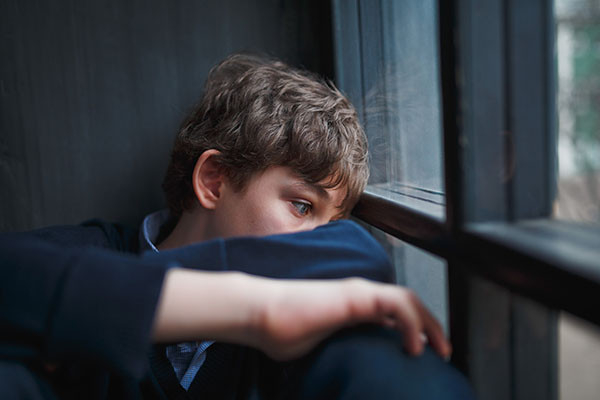
Parents like to think that they know what is going on with their children — and that they would know if their teen was suicidal. However, research shows that this is not always the case.
Teens may consider suicide more often than parents realize
In a study published a few years ago in the journal Pediatrics, researchers interviewed more than 5,000 adolescents ages 11 to 17. In those interviews, they asked them if they had ever thought about killing themselves — or if they had ever thought a lot about death or dying. The teens' parents were asked if they believed that their teens had ever thought about killing themselves, or had thought a lot about death or dying.
There wasn’t a whole lot of match-up. Half of the parents of the adolescents who thought of killing themselves were unaware — as were three-quarters of the parents of adolescents who thought often about death.
This disconnect looms larger as research shows mental health problems are on the rise in youth. According to the 2021 Youth Risk Behavioral Survey, 42% of high school students reported persistent feelings of sadness and hopelessness; 22% seriously considered suicide, and 10% attempted it.
The numbers were higher for girls and youth who identify as LGBTQ+:
- Almost 60% of girls experienced persistent sadness and hopelessness; 30% seriously considered attempting suicide, and 13% attempted it.
- Among LGBTQ+ youth, 70% experienced persistent sadness and hopelessness; 45% seriously considered attempting suicide, and 22% attempted it.
Many factors contribute to this. Stress and isolation caused by the pandemic clearly played a role. While teens are back in school, re-entry has been difficult for many. Social media clearly plays a role, inviting unrealistic comparisons, reinforcing negative thoughts and ideas, and encouraging doomscrolling. It is also a source of bullying: in the report, 16% of high school students reported being bullied electronically, including 20% of girls and 27% of those who identify as LGBTQ+.
Why the disconnect between teens and parents?
It’s not that surprising that parents don’t always know that their teens are considering suicide. Teens may not always realize how bad they are feeling, and may not want to tell their parents when they do — both for fear of worrying them, and also because of uncertainty about how their parents might react.
Parents may miss signs of depression in their teens, or quite genuinely misinterpret them or attribute them to something innocent; after all, it’s natural to want to believe that your child is fine, rather than thinking that they might be suicidal. And given how much drama can be intrinsic to the life of a teen, it’s understandable that parents could misinterpret statements about death or dying as, well, just teen drama.
What can parents do?
- Be aware of signs of depression in teens, and never ignore them. Acting sad is one of them, but there are many others:
- dropping grades
- being irritable or angry often
- acting bored all the time, and/or dropping out of activities
- difficulty with relationships, including changing peer groups or becoming more isolated
- dangerous or risky behavior
- persistent physical complaints such as headaches or stomachaches
- fatigue.
- Listen to your teen, and never assume that statements like “nobody cares if I live or die” are just drama. Instead of saying, “You don’t mean that,” ask them if they do mean it. Often parents worry that asking about suicide might “give them ideas,” but asking may be the only way to know — and the best way to show your teen that you are taking them seriously.
- Learn how to have tough conversations about mental health and suicide. The American Academy of Pediatrics has many tips and resources for parents.
- Get help. Call your doctor, call a mental health professional, call the new nationwide number 988 that can link you to local help like a suicide hotline, or take your child to a local emergency room. This is crucial. If counseling is recommended, do your best to schedule it, letting your doctor know if you are having trouble finding a provider. Make sure your teen sticks with it.
- If you suspect your teen may be depressed or suicidal, take precautions. If you have a gun in your house, make sure it is locked up with the ammunition locked separately. Take stock of prescription medications and alcohol in your house that could be used for self-harm, and either get rid of them or be sure they are stored safely.
Sometimes it is just drama — or short-term blues after a breakup or another one of life’s inevitable disappointments. And in the study, half of the teens whose parents thought they were suicidal, and two-thirds of those whose parents believed their teens thought about death, said they were fine. But when it comes to suicide, it’s always better to be safe than sorry. So ask the questions — and ask for help.
About the Author

Claire McCarthy, MD, Senior Faculty Editor, Harvard Health Publishing
Claire McCarthy, MD, is a primary care pediatrician at Boston Children’s Hospital, and an assistant professor of pediatrics at Harvard Medical School. In addition to being a senior faculty editor for Harvard Health Publishing, Dr. McCarthy … See Full Bio View all posts by Claire McCarthy, MD